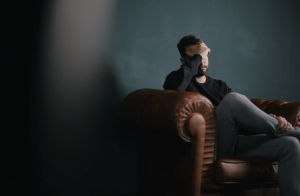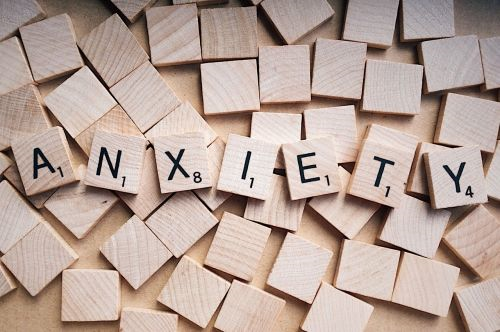Mental Health Check-In: Anxiety
One of the most common mental health disorders in the United States is anxiety. Even with an average of 40 million people who have been diagnosed with an anxiety disorder, only 36.9 percent receive treatment. Using anxiety as a synonym for being stressed or worried is common, but anxiety is intense, excessive, and persistent. It can also affect one’s – social and personal life and how you respond to situations.
Everyone has felt a sense of worry or nervousness. Whether it’s taking a test, trying something new, or at work, everyone has felt their degree of nervousness. This feeling can make palms sweaty, heart-palpitate, or hands fidgety. Those are only a few of the physical results of nervousness. But for people who suffer from anxiety, these physical symptoms are multiplied tenfold, and also, people with anxiety tend to think the worst possible scenario for many situations. Typically, it depends on the type of anxiety, but in general, that feeling is long-lasting. Even after the event is over and life goes on, you still feel the same way as before — it can last way longer than a couple of hours or days and goes into affecting other events that might not always cause fear.

Several types of anxiety disorders people might have are social, generalized, and panic disorders. Keep in mind that Phobias are also characterized as an anxiety disorder. There are multiple phobias, and they don’t always trigger something unless coming into contact with them or being mentioned, such as:
Social Anxiety, also called social phobia, defined by the National Institute of Mental Health, is described as “general intense fear of, or anxiety toward, social or performance situations.” Social anxiety is one of the most common disorders in the US. It impacts 5% of children and teens.
Generalized anxiety, according to the National Institute of Mental Health is, “excessive anxiety or worry, most days for at least six months, about several things such as personal health, work, social interactions, and everyday routine life circumstances.” Daily activities became challenging to face and create a wedge in completing them. 3.1 percent of the US population has been affected.
Panic Disorder, described by the National Institute of Mental Health, is “A recurrent unexpected panic attack.” Panic attacks are periods of intense anxiety/fear that can quickly rise to its worst when having one. It lasts a couple of minutes, but a sudden burst of fear overpowers those minutes. Various triggers can cause panic attacks and significantly affect the individual since it instills a burning fear. Experiences with panic attacks may include sweating, increased heart rate, and shortness of breath.

Resources for help
The most common way to treat anxiety disorders is medicine. A doctor prescribes all medications used for anxiety. Therapy is also used, but the doctors’ recommendation is based on someone’s specific anxiety. During a – panic attack- a useful tool can be talking to others or self-guiding yourself through it. Calling someone in this situation can help, whether it’s family or friends. There is also a hotline to call, 1-800-64-PANIC. Music and television have again been proven to help people during a panic attack. This website https://www.mentalhelp.net/anxiety/hotline/ has a lot of useful and educational tips.
SOURCES
Felman, Adam. “Anxiety: Symptoms, Types, Causes, Prevention, and Treatment.” Medical News Today, MediLexicon International, 11 Jan. 2020,www.medicalnewstoday.com/articles/323454#symptoms
Staff , Mayo Clinic. “Anxiety Disorders.” Mayo Clinic, Mayo Foundation for Medical Education and Research, 4 May 2018, www.mayoclinic.org/diseases-conditions/anxiety/symptoms-causes/syc-20350961.
Holland, Kimberly. “Anxiety: Causes, Symptoms, Treatment, and More.” Healthline, Healthline Media, 3 Sept. 2020, www.healthline.com/health/anxiety#causes.https://medlineplus.gov/anxiety.html
Committee , Evolve. “Social Anxiety Disorder in Teens and Adolescents.” Evolve Treatment Centers, 4 Jan. 2021, evolvetreatment.com/parent-guides/social-anxiety/.
Staff, NIMH. “Anxiety Disorders.” National Institute of Mental Health, U.S. Department of Health and Human Services, July 2018, www.nimh.nih.gov/health/topics/anxiety-disorders/index.shtml.


